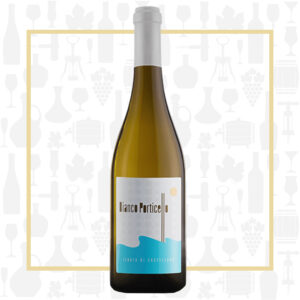Cellar Profile
Tenuta di Castellaro’s breathtaking, sustainable winery is located on Lipari, the largest of Sicily’s volcanic Aeolian Islands. It was here, in 2005 — in this rocky, mineral rich soil — that Massimo Lentsch and Stefania Frattolillo, a couple of entrepreneurs from Bergamo, planted Castellaro’s first vineyards. Once a popular region for its rich, extracted sweet wines, the Lipari wine industry was decimated by the phylloxera outbreak in the late 1800s. Castellaro’s stunning production and burgeoning reputation has focused the world’s eyes on this tiny island once again. The winery is farmed organically, with a keen eye toward sustainability and minimal ecological impact. It is powered by cutting-edge bio-energy, including solar chimneys and wind towers – an easy source of power as the island is lashed by near-constant ocean winds. Rare Lipari Island varieties such as their famed Malvasia delle Lipari and Corinto Nero, as well as indigenous Sicilian grapes like Carricante and Nero d’Avola, are planted on steep slopes and are grown “wild”, allowing native flora and fauna to be part of the ecosystem, to add to the rich biodiversity. The wines of Castellaro are known for their elegance, rich primary fruit and delicious, lip-smacking lick of salinity from the salt-infused rains and winds of the southern Mediterranean.
Region
Lipari Island is part of the Aeolian Archipelago, a historic group of islands on the north coast of Sicily in the Tyrrhenian Sea. Lipari is the largest of these islands and home to the winery. These incredibly fertile, volcanic soils were first planted to vine by the Phoenicians and have been producing wine for thousands of years. Steady breezes on this windswept island help cool the bunches during the hottest part of the days, making extremely hospitable conditions for organic and sustainable farming practices. The region is home to the indigenous varietals Corinto Nero and Malvasia delle Lipari. The deep volcanic sands sit atop large beds of porous volcanic slabs providing excellent drainage; even the most rainy years have little detrimental effect on the grapes.
Vineyard
The Tenuta di Castellaro Vineyard is located on Piana di Castellaro, a volcanic plain rising 1150 ft above the nearby Mediterranean. It is farmed organically, with a keen eye toward sustainability and minimal ecological impact. Dark sandy soils are mixed with a deep layer of rich, fertile volcanic soils, with high levels of magnesium, nitrogen, calcium and potassium. Sandier soils are often deficient in potassium, which leads to poor photosynthesis and affects fruit yields and proper berry ripening. The proximity to the sea creates a near constant wind, which helps prevent mildew and most fungus and which cools the berries during the midday heat while also occasionally lashing them with a fine slat spray, giving the finished wines their characteristic salty tang. The vines are “head-trained”, with large clusters affixed to upright poles at consistent distances, allowing for higher planting density and focusing of the plant’s energy on fewer, healthier grape bunches.
Varieties
Carricante is indigenous to the eastern parts of Mount Etna in Sicily. This big-berried, high-yielding, slow-ripening grape prefers volcanic soils and is perfectly suited for the long, hot growing seasons of Southern Italy. It also grows best where there are large diurnal shifts as its trademark acidity needs hot days to ensure full ripening of the sugars for balance, while cool evenings ensure that its true, nervy character remains. Frequently, lees aging and stirring are used to add mouth feel and complexity. The finest examples age extremely well and gain significant complexity with time in the bottle. Moscato Bianco, also known as Muscat Blanc à Petits Grains, is a white grape indigenous to Greece but also found throughout Italy and the rest of Europe. Intensely aromatic and perfumed, it can ripen to high sugar levels in warm climates, so care must be given to not allow alcohol levels to spike. The wines made by Moscato have very distinctive grapey, candied and floral notes on the nose, while maintaining fine, bracing acidity.
Winemaking
Grapes are hand-harvested in the evening and early morning and gently pressed to extract as much free run juice as possible and to avoid any astringency or bitterness from crushing the pips. After a cold settling to help clarify the must, the juice is gently fed into stainless steel, where it undergoes a long, cool ferment for two weeks. The wine then spends 6 months aging on its gross lees, with regular batônnage to extract complexity. It is aged another 5 months in bottle before release.
Tasting Notes
Bianco Porticello is named for the famed Lipari beach situated in close proximity to the winery. Aromas of fresh cut white flowers, minerality, salt water, white grapefruit and table grape. It is mid-weight but the dancing acidity makes it seem light and refreshing. The palate has crunchy minerality, green apple, lemon-lime and orange zest flavours, as well as a distinctive, salty Sicilian finish. Chill and serve as an aperitif or with seafood salad, grilled Octopus or a side of fries!

 info@buyersandcellars.ca
www.buyersandcellars.ca
info@buyersandcellars.ca
www.buyersandcellars.ca